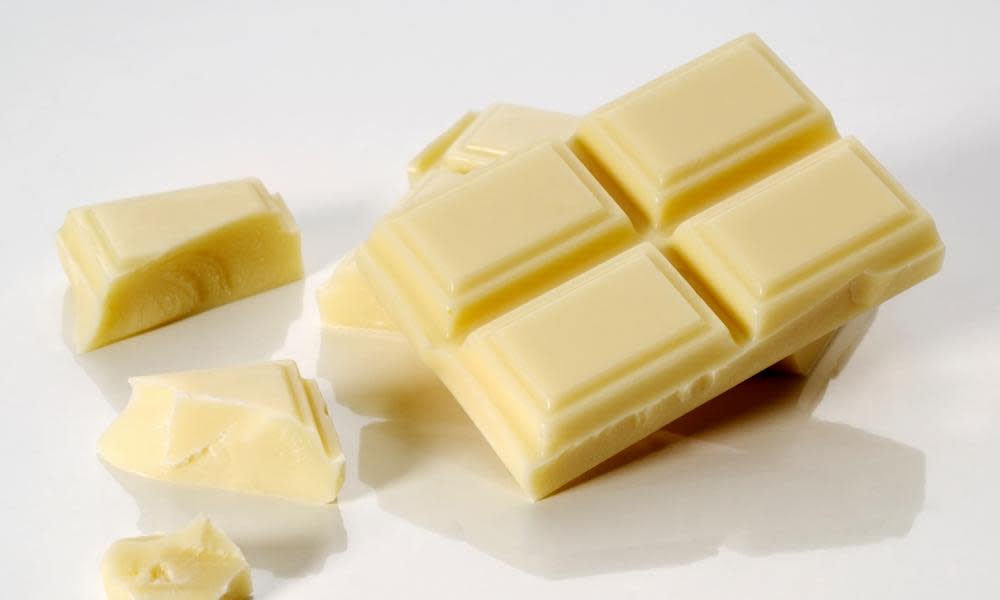E171: EU watchdog says food colouring widely used in UK is unsafe

A food colouring used in products sold in the UK ranging from chewing gum and white chocolate to toothpaste and sauces for toddlers can no longer be ruled out as a cause of cancer, the European Food Safety Authority has said.
Titanium dioxide, or E171, is often used to whiten food products, but its use has long been a point of concern over fears that it could be carcinogenic. The French government announced a ban in 2019, but it is still used in other EU member states.
The EU health commissioner, Stella Kyriakides, tweeted: “Following the EFSA’s new scientific opinion on the food additive E171, we will propose to ban its use in the EU. Discussions with member states will start this month. Our priority is the health of citizens and the safety of the food they eat.”
A spokesman for the UK Food Standards Agency said: “The opinion issued today by the European Food Safety Authority on the safety of titanium dioxide as a food additive will be scrutinised by the independent scientific advisory committees that advise the FSA, alongside existing scientific evidence. This review will help decide what next steps are needed to safeguard consumers and will inform future policy.”
The EFSA’s conclusion, based on thousands of new studies, found that genotoxicity, which is the ability of a chemical substance to damage DNA, could not be ruled out and that a “safe level for daily intake of the food additive could not be established”.
Genotoxicity may lead to carcinogenic effects, the EFSA said. The experts concluded that as a result E171, which is composed of a mix of titanium dioxide nanoparticles, could not be considered safe when used in food.
The main food categories contributing to dietary exposure of E171 are fine ingredients in baking, soups, broths, savoury sandwich spreads and sauces for infants and toddlers . Processed nuts are also said to be “a main contributing food category for adults and the elderly”.
The EFSA published a study in September 2016 which concluded that evidence available at that time did not indicate that it was a cause of health problems, but recommended further work on the issue. France’s Health Security Agency has long urged caution over the use of E171 and a ban came into force in January 2020.
Prof Maged Younes, the chair of the EFSA’s expert panel on food additives and flavourings, said that new understandings of nanoparticles had led to the change of position. Titanium dioxide contains up to 50% ultra-small “nano range” particles.
“Taking into account all available scientific studies and data, the panel concluded that titanium dioxide can no longer be considered safe as a food additive,” he said.
“A critical element in reaching this conclusion is that we could not exclude genotoxicity concerns after consumption of titanium dioxide particles. After oral ingestion, the absorption of titanium dioxide particles is low, however they can accumulate in the body.”
Watch: Simple steps to a healthier life

 Yahoo News
Yahoo News 
